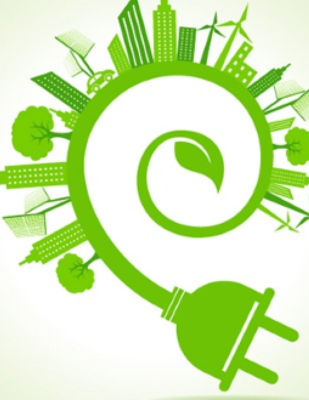When carbon as fuel is a commodity valued at only ~$90 a ton but carbon as a fiber for building is worth over ~$220,000 a ton you know the industrial landscape is shifting. When gas and oil companies begin investing in algae, solar, and hydrogen you know the market is changing. When an entire generation calls out to politicians to rise to the challenge, does anyone believe we are talking to “leadership” anymore? A fancy title or degree has never been the true measure of worth and many of the most influential people have never held office or position of affluence. Like Serena Williams, often grit, determination, and a clear vision of purpose can elevate a person from the lowest to the highest of the social ladder because purpose is what gives them the strength to do the work, day in and day out. In the last few years, we have seen more leadership from a 16-year-old girl than we have from elected officials in the highest offices. The generational message,
“Don’t wait for the government to act! Be the ‘leader’ you want to see in the world.”
Over 20 years ago, as a student at Lathrop High School in Fairbanks, Alaska, I had the opportunity through “club earth” to engage and it has become a life-long passion and focus of my professional career. Today, I serve the planet and her people as an Ecodistrict accredited professional, workforce development specialist, and with a great group of people, operate a 501c3 whose focus is mainstreaming the regenerative economy. Ecodistricts is a proven method of developing models and plans for neighborhoods, villages, and cities that work with nature to create generational prosperity which is a departure from the extraction and exploitation markets that destroy it, and everything else.
In a recent article to the Anchorage Daily News, Margi Dashevsky, the Regenerative Economies Director for the Fairbanks Climate Action Coalition, made the case of the growing divide between the people, the planet, and the politicians. The projects being pushed in the state, and Fairbanks plans are rehashed efforts from as far back as the 1950’s and completely fail to address the economic opportunities to be a climate champion. There are Billions of dollars from the government and private equity investments being directed into upgrading our homes, communities, and state infrastructure. Now is the time to recognize change is inevitable and growth is optional. Exercising our civic muscles by directly engaging in or creating community development initiatives is the path of least resistance to building local resilience
For the last decade the Alliance for Reason and Knowledge has served the state as advocates, hosting annual regenerative economies summits, organizing the annual solar tours, and advocating for the responsible deconstruction and innovative use of the site where the Polaris hotel now stands, in the center of the Golden Heart city. Projects like the Fairbanks Agricultural Resiliency Market have long been viable solutions to many issues like food, housing, job training, and energy but the lack of leadership isn’t confined to the state and national levels. It is here, however, that we can make the most impact. Not voting for the next best thing but developing our own solutions, being our own change.
We have always believed innovation and a pioneering spirit that led to the development of the nations’ mineral wealth, is the true “resource” the state should be cultivating. That prosperity comes from inspiring the education of critical thinkers that provide reliable innovation as the peaceful engine of an exploration economy. That geotourism (celebrating the land and culture), aerospace research (into habitation, populations in isolation, and developing low impact locally focused tech), and development of advanced ecologically beneficial industries could and will prepare us to thrive and make the best of what comes next.
As the states first “just transition practitioner” working for an educational organization we have an obligation to share this knowledge. To deploy these resources so other people, business leaders, and interested parties can learn how to bridge these divides and plan together to lower the cost of living and increase the quality of life for all. Tuesday Sept 13, 2022, at 6pm via Zoom is the next meeting and you can register here or at www.a-r-k.us for free.
People make action plans. Organizations write business plans. Municipalities use the comprehensive economic development strategy (CEDS) to guide actions and investment in a future we can all enjoy in perpetuity.

